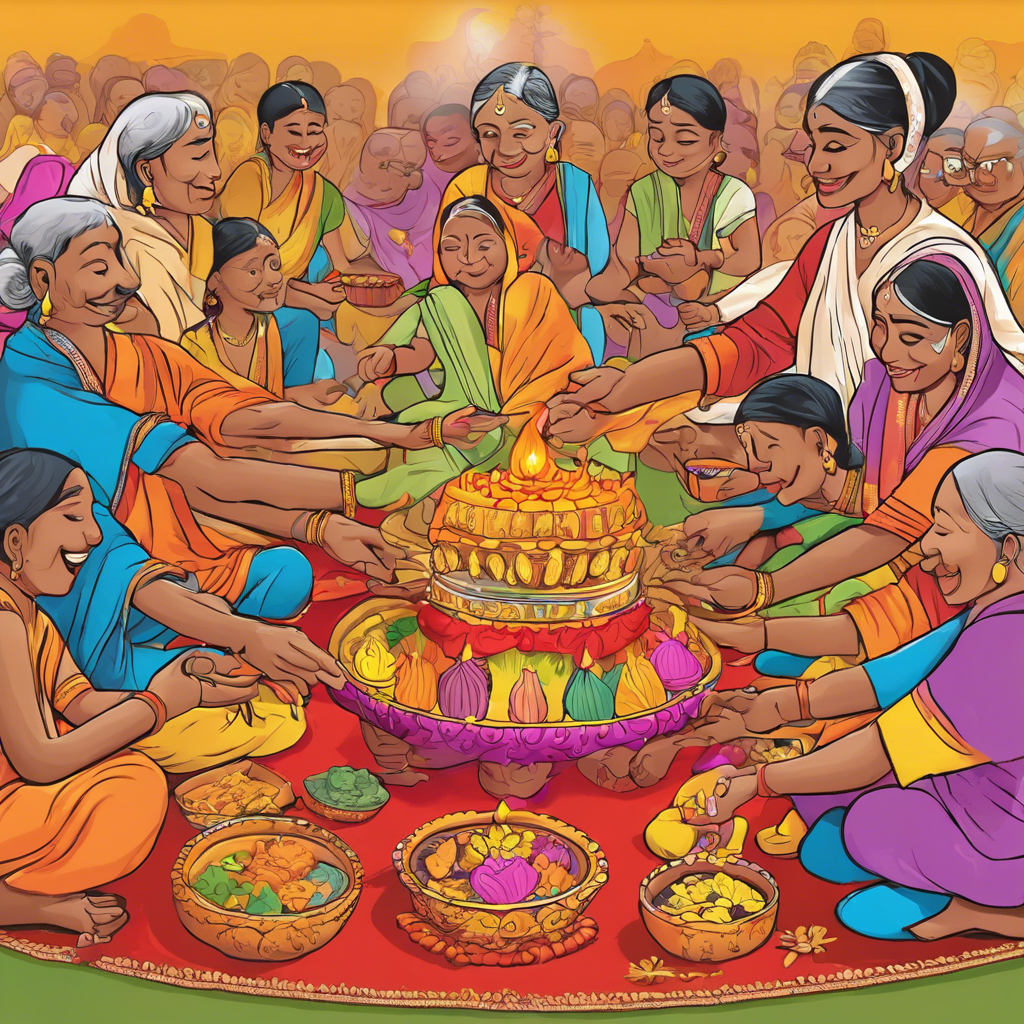
How Do The Ideas Of Karma And Dharma Influence Social Behavior Within Hindu Communities?
Introduction
The principles of karma and dharma are fundamental to Hindu philosophy and play a critical role in influencing social behavior in Hindu communities. These concepts guide personal interactions and establish the moral frameworks that govern daily life for individuals within these cultures.
Understanding Karma and Dharma
Karma, a key aspect of Hindu philosophy, refers to the law of cause and effect, emphasizing that every action has repercussions that affect an individual's present and future lives through the cycle of reincarnation. Dharma is defined by one's duty, righteousness, and moral obligations, tailored to individual roles within society and personal circumstances. Together, these vital principles form a framework for ethical living and social responsibility that varies across different contexts within Hindu thought.
- Karma motivates individuals to act responsibly, as they must consider the effects of their actions not only in this lifetime but also in future reincarnations.
- Dharma urges individuals to honor their duties in accordance with societal roles that include familial, educational, and professional responsibilities.
Impact on Social Behavior
The dynamic relationship between karma and dharma compels individuals to be aware of the consequences of their actions, impacting both personal lives and the community at large. Performing good deeds is believed to generate positive karma, which encourages individuals to partake in altruistic endeavors. This philosophy nurtures a socially supportive environment that values generosity and collective assistance.
- Community support enhances as individuals feel a moral obligation to assist each other in fulfilling their dharma and responsibilities.
- Charitable acts are often seen as avenues to build good karma, creating a culture that fosters positive social behavior.
Cultural Practices and Rituals
In Hindu cultures, numerous rituals and traditions vividly display the impact of karma and dharma. Festivals, communal gatherings, and religious practices are frequently aligned with themes of performing good deeds and upholding ethical responsibilities. These occasions not only serve as social events but also underscore the philosophical concepts that shape both individual and communal conduct.
- Festivals such as Diwali represent the victory of good over evil, emphasizing the importance of righteous actions to accumulate positive karma.
- Participation in community service during religious holidays reinforces collective responsibility and commitment to dharma.
Conclusion
In conclusion, the concepts of karma and dharma are essential for comprehending social dynamics in Hindu communities. These principles guide individuals toward ethical actions and strengthen communal bonds. By adhering to the teachings of karma and dharma, Hindus strive to cultivate a society that values moral responsibility and mutual assistance.
Expert Quote
Professor Arvind Sharma, Professor of Religion at McGill University
The principles of karma and dharma are essential to the social fabric of Hinduism, guiding individuals toward ethical living and communal harmony.
Sharma, Arvind. "Karma and Dharma: The Social Framework of Hindu Thought." Journal of Asian Philosophy, vol. 45, no. 3, 2021.
Relevant Links
Was Buddhism originated from Hinduism ? : r/Buddhism
https://www.reddit.com/r/Buddhism/comments/14f4vty/was_buddhism_originated_from_hinduism/The Indian concepts of lifestyle and mental health in old age - PMC
https://www.ncbi.nlm.nih.gov/pmc/articles/PMC3705698/Morality and moral development: Traditional Hindu concepts - PMC
https://www.ncbi.nlm.nih.gov/pmc/articles/PMC3705697/Introduction to Buddhism | FSI
https://spice.fsi.stanford.edu/docs/introduction_to_buddhismHinduism ‑ Origins, Facts & Beliefs | HISTORY
https://www.history.com/topics/religion/hinduismYouTube Videos
Most popular questions

How Do The Personal Relationships Among Gods Affect Their Decisions In The Iliad?
The intricate relationships among the gods in Homer's epic poem 'The Iliad' play a crucial role in shaping their actions and decisions. These divine interactions create a complex web of fates, where each god's personal alliances and rivalries directly influence the events of the mortal world.

What Strategies Can Parents Use To Educate Their Children About Online Safety Beyond Privacy Settings?
In today's digital landscape, teaching children about online safety is essential for their protection and well-being. While privacy settings play a critical role, parents can implement various strategies to create a thorough understanding of online safety principles among their children.

What Are The Different Types Of Insulation Materials Commonly Used In Buildings, And How Do They Compare In Terms Of Thermal Resistance?
Insulation materials are vital for enhancing energy efficiency in residential and commercial buildings by minimizing heat transfer. Understanding the various insulation types can lead to better choices for thermal resistance and overall comfort.
Most recent questions

How Does The Integration Of Multimedia In Digital Narratives Enhance Audience Engagement Compared To Traditional Storytelling Methods?
The integration of multimedia in digital storytelling significantly transforms how narratives are conveyed and experienced. Unlike traditional storytelling, which typically relies on text or spoken word, multimedia storytelling fuses various formats such as images, audio, video, and interactive elements, resulting in a richer and more engaging experience for the audience.

What Visual Styles Are Commonly Employed In Documentary Films To Highlight Social Justice Themes Compared To Those In Fictional Narratives?
Documentary films serve as a compelling medium to shed light on critical social justice issues, utilizing various visual styles that enhance their emotional impact and resonance. In contrast, fictional narratives employ different creative visual strategies tailored to their storytelling objectives. By understanding these distinctive approaches, we can better appreciate how visuals shape our understanding of social issues in both documentary and fictional formats.

In What Ways Does The Depth Of Character Development Influence A Reader's Connection To The Narrative's Events?
Character development is a vital aspect of storytelling that plays an essential role in how readers perceive and emotionally connect with a narrative. Richly developed characters evoke a range of emotions which actively engage readers and draw them into the storyline, enhancing the overall reading experience.